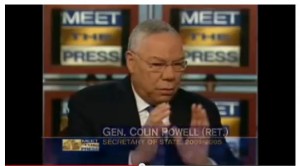As a journalist covering climate change, I would invariably hear from skeptics of climate change. They didn’t believe the facts that virtually every credible scientist is certain of – human activity is releasing enough carbon dioxide and methane to dangerously warm the planet. And no amount of discussion really makes any difference, as we’ve seen play out on news pages and news shows.
I see a similar trend in the current topic I’m researching – health disparities between the wealthiest and poorest. The essence is some people dismiss the idea that social and nonprofit supports for the poorest areas are justified – that America is the land of opportunity for all, and everyone is responsible for their fate. While there’s truth to that, they also ignore the enormous obstacles from birth on facing those born in poor areas – especially if you’re black or brown – obstacles with which wealthier or middle-class people never contend. Examples include poor school quality, limited access to good food and safe parks, and chronic stress from living in unsafe neighborhoods, to name a few.
Social scientists puzzle over the phenomenon, and a Boston Globe article titled “How facts backfire” noted that people often form opinions based on beliefs. These beliefs “can have an uneasy relationship with facts,” Joe Keohane, the writer, noted. “And rather than facts driving beliefs, our beliefs can dictate the facts we chose to accept.”
At an Oct. 2013 conference in Los Angeles, Maya Wiley, the founder and president of the Center for Social Inclusion, showed a powerful way of getting around this cognitive dissonance. She used the example of Gen. Colin Powell on a “Meet the Press” interview sharing a story about a soldier’s death to dispel the fabrication that President Obama is Muslim and, more to the point, that therefore being Muslim is bad.
Below is the transcript of that 2008 interview with Tom Brokaw, during which Powell explains his endorsement of Obama’s presidential bid. And here’s the link to the video (scroll to minute 4):
“I’m also troubled by, not what Senator McCain says, but what members of the (Republican) party say. And it is permitted to be said such things as, “Well, you know that Mr. Obama is a Muslim.” Well, the correct answer is, he is not a Muslim, he’s a Christian. He’s always been a Christian. But the really right answer is, what if he is? Is there something wrong with being a Muslim in this country? The answer’s no, that’s not America. Is there something wrong with some seven-year-old Muslim-American kid believing that he or she could be president? Yet, I have heard senior members of my own party drop the suggestion, “He’s a Muslim and he might be associated with terrorists.” This is not the way we should be doing it in America.
I feel strongly about this particular point because of a picture I saw in a magazine. It was a photo essay about troops who are serving in Iraq and Afghanistan. And one picture at the tail end of this photo essay was of a mother in Arlington Cemetery, and she had her head on the headstone of her son’s grave.
And as the picture focused in, you could see the writing on the headstone. And it gave his awards – Purple Heart, Bronze Star – showed that he died in Iraq, gave his date of birth, date of death. He was 20 years old. And then, at the very top of the headstone, it didn’t have a Christian cross, it didn’t have the Star of David, it had crescent and a star of the Islamic faith. And his name was Kareem Rashad Sultan Khan, and he was an American. He was born in New Jersey. He was 14 years old at the time of 9/11, and he waited until he can go serve his country, and he gave his life.
Now, we have got to stop polarizing ourselves in this way.
Powell didn’t use facts to persuade viewers, Wiley emphasized. He told a story with universal resonance, and invoked patriotic values to chide those who would judge people based on their religion.
“He takes you there gently and emotionally,” Wiley said. ‘And what he’s done is he’s humanized one of the most demonized segments of our society and he’s blown (the prejudices) apart. I say you humanize first, and then go out after the wedge issue.”


